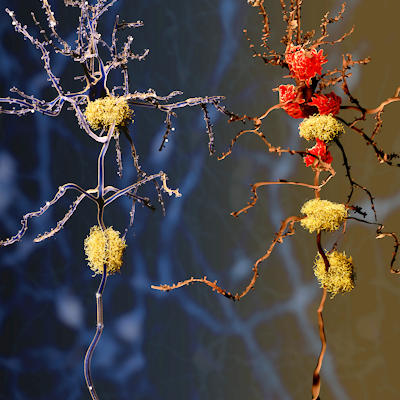November 30, 2022 -- Rutgers University researchers have discovered that the underproduction of immune cells called mucosal-associated invariant T cells (MAITs) contribute to Alzheimer's disease and other cognitive disorders. Their study, published November 21 in the journal Nature Immunology, shows how increasing these cells could reverse the damage.
MAITs nested in the meninges -- the membrane layers that cover the brain -- appear to protect against cognitive decline by creating antioxidant molecules that combat toxic byproducts of energy production called reactive oxidative species, according to the Rutgers team. Without MAITs, the reactive oxidative species accumulate in the meninges and cause meningeal barrier leakage. When the meningeal barrier leaks, potentially toxic substances enter and inflame the brain. This accumulation eventually disrupts brain and cognitive function.
For the study, the researchers deactivated the gene that produces MAITs in mice and compared the cognitive function of normal and MAIT cell-deficient mice. Initially, the two groups performed the same, but as the mice grew into middle age, the genetically altered mice had difficulty forming new memories. They then injected the genetically altered mice with MAITs, and their performance in learning and memory-intensive tasks returned to normal.
In addition, the study revealed that humans may increase MAIT cell production by altering their diets or making other lifestyle changes, according to lead author Yuanyue Zhang, a postdoctoral researcher at the Child Health Institute of New Jersey.
Going forward, the authors aim to build on their findings with research that compares MAIT numbers in healthy humans to those with cognitive diseases such as Alzheimer's.
"The MAIT cells that protect the brain are located in the meninges, but they are also present in blood, so a simple blood test should let us compare levels in healthy subjects and those with Alzheimer's disease and other cognitive disorders," senior author Dr. Qi Yang, PhD, associate professor at the Child Health Institute of New Jersey at Rutgers Robert Wood Johnson Medical School, said in a statement.
Copyright © 2022 scienceboard.net










